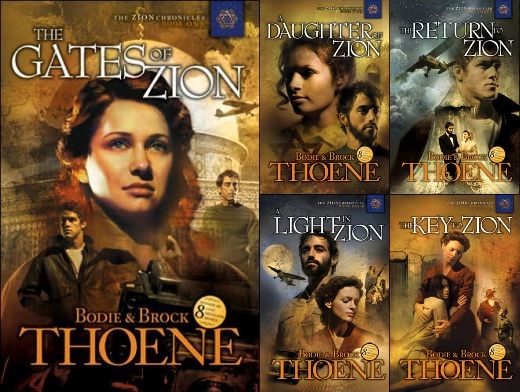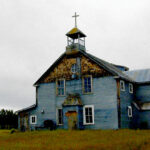Blog Post
The very best of Christian historical fiction
Note: A few people have asked me to write a couple of lists of recommended books. This is the first of several.
By Jonathon Van Maren
As a history buff, historical fiction has long been one of my favorite genres. Unfortunately, I rarely read fiction anymore, as much of modern historical fiction is so rife with sexually explicit scenes and blasphemous language that it should be avoided by the discerning reader. I’ve tossed several in the garbage over the past few years despite incredible writing and riveting plotlines for these very reasons.
Another key issue with much historical fiction is the inability of modern authors to actually infiltrate the mindset of those they are attempting to bring to life. Too often, the sentiments of historical characters end up resembling those of the late 20th century or the 21st. Especially when it comes to the treatment of religious belief, authors frequently prefer to portray faith as feigned and religious practice as cynical. One of the best authors of historical fiction writing today, Conn Iggulden, fell into this trap in Dunstan: One Man. Seven Kings. England’s Bloody Throne, a fictional rendering of the great Archbishop of Canterbury. While Iggulden’s Wars of Roses series is excellent, he portrays Dunstan as a Machiavellian figure, taking pains to explain away anything spiritual or miraculous. The result is deeply unsatisfying.
The Christian fiction industry, however, is plagued by its own problems. Many authors appear to have a single good idea, write one or two good books, and then settle down to replicate variations of the same story over and over again. The cottage industry of Amish romance is a good example; Christian romance in general is a tired genre in which the reader faithfully plods the worn and weary path to the inevitable conclusion (often some variation of: non-Christian falls in love with Christian; they agonize over this and part ways; the miracle occurs and they live happily ever after.) You get what you pay for, and it isn’t literature.
This also applies to the hundreds of cookie cutter historical novels that are often laughably short on research and simply place the same plot in a different time period (Gilbert Morris’s House of Winslow series is a cringeworthy example of this.) In short: Just because it’s “Christian” doesn’t mean it’s any good. Badly-researched historical novels are painful pablum and generally, in my view, a waste of time.
But there are some magnificent examples of historical fiction by Christian authors that easily rival some of the best works by non-Christian writers. This list could be much longer, but I’ll highlight just a few.
Paul Maier
Paul Maier is a historian and writer born in 1930, and formerly served as the Russell H. Seibert Professor of Ancient History at Western Michigan University, where he still retains the title of professor emeritus in the Department of History. He’s written many books, but his two “historical documentary” novels, Pontius Pilate (1968) and The Flames of Rome (1981) are outstanding. Drawing from all available historical sources, Maier renders the ancient world in vivid color. Pontius Pilate follows the career of the Roman Empire’s most famous provincial official while detailing the politics in painstaking detail. The Flames of Rome follows the family of Flavius Sabinus, the mayor of Rome under Nero, covering the Great Fire of Rome and the religious clashes that defined Christianity’s early beginnings. I’ve read both several times and learned more with each reading.
Francine Rivers’ The Mark of the Lion Trilogy
Also set in the first century is the Francine Rivers’ magnificent Mark of the Lion series, which begins with the fall of Jerusalem in 70 AD and follows the life of a Jewish slave girl, a young Roman aristocrat, and a Germanic barbarian captured in battle and trained as a gladiator. The decadence of Rome is detailed with both bluntness and prudence: promiscuity, abortion, materialism, and the ugly spectacles of public blood sports are all present, and the world Rivers’ renders bears eerie similarities to our own. I should note here that the distinctly evangelical Arminianism throughout the series is unfortunate, but the trilogy is still a brilliant achievement.
Brock and Bodie Thoene’s historical fiction
The Thoenes are a ferociously productive writing team (more than 65 books), and not everything they’ve produced is of the same quality. But the five-book series The Zion Chronicles, detailing the leadup to the State of Israel’s War of Independence in 1948, is one of the best historical works on this period ever written (easily matching Leon Uris’s Exodus, but without the objectionable material.) Their prelude series, The Zion Covenant, which covers the runup to the Second World War up to the Blitz, is also rich with historical detail, well-rounded characters, and riveting plotlines. Along with the Shiloh Legacy series, which covers some of the same characters during the Great Depression, these books alone place the Thoenes in the top tier of historical fiction writers. Bodie was a journalist before she was an author, and it shows.
Some of their other works—the AD Chronicles, for example—do not possess the same level of detail, historical research, or character development. To be honest, the shift in quality from the Zion and Shiloh books to some of the others (including the short-lived and apparently discontinued series the Zion Diaries) is somewhat jarring. These books are still quite good—I’ve read them all—but I’ll admit I was somewhat disappointed after having the standard set so high by their first historical works, which I’ve re-read multiple times. (As a side note, some readers may be interested in an interview I did some years ago with Brock Thoene, a historian, on how legal abortion paved the way to eugenics in Hitler’s Germany.)
Davis Bunn’s Priceless Collection
Davis Bunn’s Priceless trilogy follows a young American business executive who leaves the rat race to join an antique shop in London. Mentored by an older relative, Jeffery Sinclair pursues exquisite treasures behind the Iron Curtain during the leadup to the collapse of Communism, and the totalitarianism and suffering he witnesses are derived from scores of interviews the author conducted with eyewitnesses. Bunn only wrote three books in this series—Florian’s Gate, The Amber Room, and The Winter Palace—and I wish he’d written more. He captures life in the Warsaw Pact; the antiques trade; and the suffocating soullessness of both Western materialism and Communism in a fashion reminiscent of Solzhenitsyn’s Warning to the West. The detail, however, doesn’t suffocate his characters, and even the somewhat stereotypical romantic subplot flows seamlessly.
Michael Phillips’ Secret of the Rose Trilogy
In this masterful set, Michael Phillips traces a family through wartime Nazi Germany into East Germany under Communism. They’re thick novels—Phillips is a fan of the historical fiction master James Michener—but riveting nonetheless. Many novels set during this period use historical events as mere backdrop (generally for romance), but Phillips takes his time setting the scene and the result is well worth your time.









Have you read “The Bronze Bow” by Elizabeth George Speare. It won the Newberry Medal in 1962. She knew her Bible. Best Christian fiction book I have read.
I’ve read several of her others but not that one!